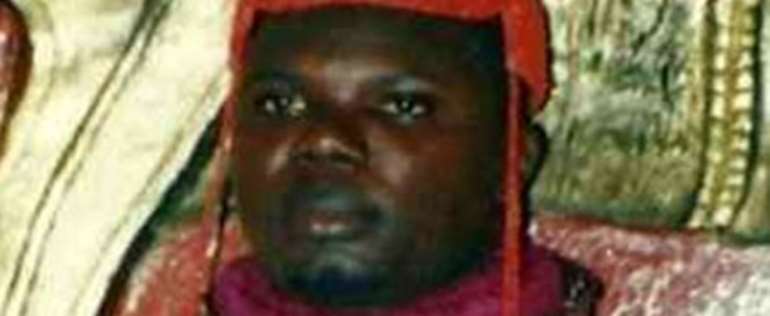Raging controversy over Obi of Igbodo's marriage to non-indigene

What played out in England in 1936 when King Edward VIII abdicated his throne to marry the woman he dearly loved, seems to be playing out in Igbodo kingdom in Delta State. The Obi of the community is in a tangle with his subjects over whether to abide by the age-long tradition and custom of the people and marry a native or insist om marrying his Abakaliki-born heartthrob.
Before the Abakaliki-born wife of the Obi was forcibly ejected from the palace recently, a cold war had brewed between the young Obi who is in his 30s and majority of his subjects especially the womenfolk and some palace chiefs, who are insisting that marrying a non indigene was a desecration of their land.
Obi shows traits of modernising culture
The Obi who is a law graduate, upon mounting the throne, had subtly given the sign that changes were in the offing although many of his subjects could not read his lips well. He became the Obi immediately after the death of his father, His Royal Majesty Albert Sunday Iyeke III, and was crowned on January 12, 2007.
Asked then by newsmen about why his surname was changed from Iyeke to Osedume, the Obi said that the surname was changed by his late father before he died. According to him, he did not know the reason behind the change. He further stated that his father was the end to the Iyeke dynasty while Osedume I is the first and beginning of his generation.
What led to the cold war: Along the line, he was said to have married the Abakaliki woman from Ebonyi State who presently has a baby girl for him. But that marriage not withstanding, the community leaders led by the palace chiefs insisted that he must marry an Igbodo woman. And there came the face off which culminated in series of correspondences to the Delta State Government. The letters were authored by the Iyase of Igbodo Kingdom (Prime Minister), Chief Joseph Unomah.
One of such letters by the Iyase was dated November 20, 2012 and addressed to the State Deputy Governor, Prof. Amos Utuama (SAN). Titled 'The boycott of the palace of HRM, Obi of Igbodo by all his subjects' read in part: 'I do not intend to bore your Excellency with details of the case in this memo, but the root of the problem is that the Obi of Igbodo wants to marry an Ebonyi State woman, contrary to the custom and tradition of our people.
In other words, the custom is that the first legitimate wife, who will bear the heir to the throne, must be a native of Igbodo kingdom.' While the conflict was still on, the mother of the King, popularly called the Queen Mother passed on and the Igbodo people insisted that there would be no burial until the Obi gets married to an Igbodo woman. This, according to them, must be done as prescribed by the tradition before the interment.
The Obi did not bulge. The last straw that broke the camel's back took place on December 28, 2012. The embattled Obi went and mobilised people from Ebonyi State, an officiating minister from Asaba and arrived the palace with the 'controversial' wife for the commencement of the burial.rites.
In a jiffy, the villagers stormed the palace in a commando style, insisted that the burial must stop and the Ebonyi-born wife ejected. They succeeded when armed soldiers and policemen found out that there would be chaos and shielded away the woman from the palace. That was the deportation.
The outrage that followed: The first salvo was fired by the national co-ordinator of the Forum for Justice and Human Rights Defence, FJHD, Mr. Oghenejabor Ikimi. His group is even contemplating instituting a law suit to challenge the deportation of the Obi's spouse.
He said: 'We volcanically condemn same as stone aged and an insult to womanhood. We submit that the Igbodo custom which still forbade a 21st century Obi from marrying a non indigene as wife is one of the numerous harmful cultural and traditional practices inhibiting women's rights nationwide and we call on all women groups outside the kingdom to condemn same.
To address the above challenges, we call on the Federal Government to ensure the immediate passage into law of the bill on the abolition of all forms of discrimination against women in Nigeria and other related matters and the domestication of the African Union Protocol to the African Charter on the Rights of Women in Africa'.
Another activist disagrees, insists that tradition should be respected no matter what: Delta State Commissioner for Basic and Secondary Education, Prof. Patrick Muoboghare, stated that tradition is sacred and such activists should not meddle into.in it. He said: 'I can go to Maiduguri and marry a Muslim woman; nothing stops me but there are those who dare not.' (Vanguard)
